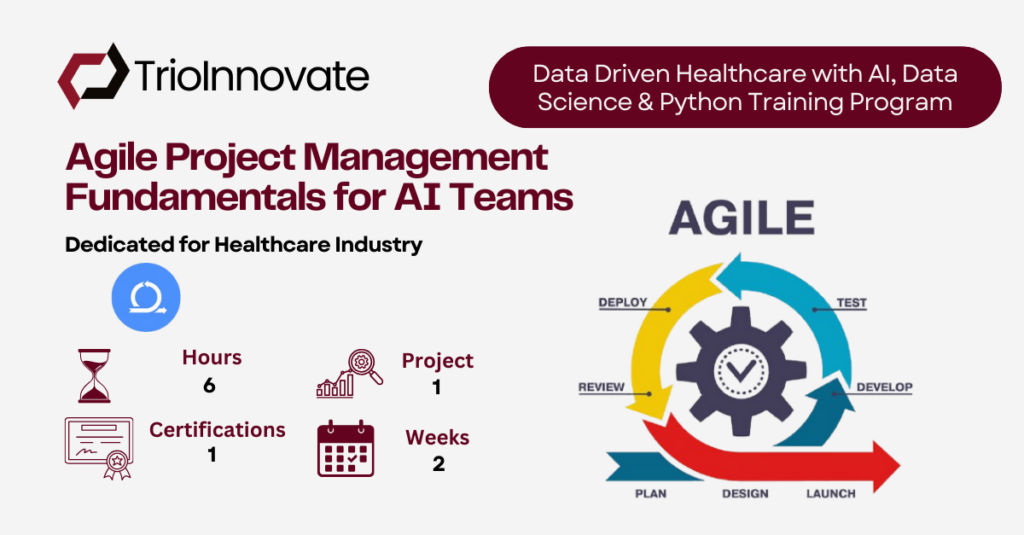Agile Project Management Fundamentals for AI Teams
Course Overview
This course covers the principles of Agile project management tailored for AI and data science teams. Participants will explore Agile frameworks such as Scrum and Kanban, along with key roles, ceremonies, and artifacts. The course emphasizes best practices for managing AI projects, ensuring iterative development, collaboration, and adaptability. By the end, learners will have a solid foundation in applying Agile methodologies to AI-driven initiatives.
Key Skills
- Supervised Learning Fundamentals (Classification & Regression)
- Python for Machine Learning (Pandas, NumPy, Scikit-learn)
- Key ML Algorithms (Linear Regression, Decision Trees, SVM, k-NN)
- Model Evaluation & Metrics (Accuracy, Precision, Recall, F1-Score)
- Data Preprocessing & Feature Engineering
- Hyperparameter Tuning & Model Optimization
Course Outline
Agile Project Management Fundnamentals
Core principles of Agile methodology (e.g., Scrum, Kanban)
Lessons Objective
- Understanding Supervised Learning (Classification & Regression)
- Model Training & Evaluation
- Overfitting & Underfitting
Managing projects through iterative cycles and sprints
Lessons Objective
- Working with Scikit-learn
- Data Handling with Pandas & NumPy
- Data Visualization using Matplotlib & Seaborn
Working with cross-functional teams and collaborating in a flexible environment
Lessons Objective
- Linear Regression
- Decision Trees
- Support Vector Machines (SVM)
- k-Nearest Neighbors (k-NN)
- Logistic Regression
Tools and techniques for tracking progress, feedback, and delivering value
Lessons Objective
- Performance Metrics (Accuracy, Precision, Recall, F1-Score)
- Train-Test Split & Cross-Validation
- Hyperparameter Tuning
- Feature Selection & Engineering
Projects in this course
In this project, you will apply supervised machine learning techniques to predict customer churn for a telecom company. Using a real-world dataset, you will:
- Preprocess the data (handling missing values, encoding categorical features)
- Train and evaluate models like Logistic Regression, Decision Trees, and k-NN
- Compare model performance using metrics like accuracy, precision, recall, and F1-score
- Optimize models through hyperparameter tuning
- Visualize insights with Matplotlib & Seaborn
By completing this project, you will gain hands-on experience in classification problems, model evaluation, and real-world data handling.

Course Duration:
10 Hours
Earned Skills:
Python, Problem Solving, Supervised Learning Algorithms
Earn Certification:
Earned a valuable certificate to boost your resume


